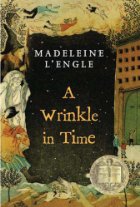
Last Sunday I spent the entire afternoon curled up with a book - something I used to do all the time but which now seems incredibly luxurious. The book in this case was an old friend: Charlotte Brontë's Jane Eyre, which I was re-reading for the third or fourth time. I can't help loving Jane Eyre, mostly because I love Jane herself: so earnest, yet such an effective tease and sometime smartass, with her impressive self-control and occasional bursts of audacious temper. I think Brontë struck a very unique balance with Jane: she doesn't, especially in retrospect, take herself overly seriously, but she doesn't discount the validity of her experiences, either. Her sardonic, sensible tendency to poke fun at her past self is tempered by a real core of self-respect and self-esteem, in the true sense of believing that her selfhood has value. It's not a combination you see a lot in heroines from Victorian novels, and it makes her seem quite real to me. I like her for arguing, at the age of ten, that surely we should strike back at those who oppress us, and only love those who love us in return (not the standard turn-the-other-cheek doctrine). And I like her for her increasing subtlety and realistic-seeming struggles with issues of faith and spirituality as she gets older. So often the sympathetic female characters in nineteenth-century novels are not allowed any doubt, of either morality or religion, because they are supposed to be unalterable, self-sacrificing moral compasses leading the corruptible men back to salvation while turning the other cheek and never raising their voices. Not that Jane Eyre is without this theme. But it's definitely a lot more complicated than, say, Amelia's character in Vanity Fair, or Biddy in Great Expectations, or any of the women of Bleak House.
I have to say, though, that the xenophobia and racism in the book really got to me during this reading in a way it hasn't before. All that stuff about French people being innately superficial and shallow compared to the staunchly disciplined English? The progression of stereotyped mistresses kept by Rochester, in which the flighty Parisian is followed by the immoral Italian and the slow-witted German? And how we're supposed to overlook Rochester's imprisonment of Bertha because, well, her mother was a Creole, and you know how prone to sin and madness those tropical brown people are? The scene where Rochester is describing how the hot tropical air is closing in on him, and he thinks about killing himself but then a sweet, pure breeze comes in "from Europe" and realizes that he "isn't really married" and should just go back to Europe and start looking for another woman? The phrase "the pure breeze from Europe" is repeated in different configurations about three or four times, just in case we hadn't picked up on the idea that the atmosphere and peoples of the East are polluted and we should stick to good old English salt of the earth, which will purify us and save us from descending into madness ourselves.
At the same time, it's interesting that Jane feels such a yen to explore the world outside the hills that bound her station, and that she is very conscious and admiring of objects that come from far-away lands (the Turkish carpet, the imported china, etc.). And she is especially thrilled at the idea of traveling after her marriage to Rochester. So it's an intriguing, and perhaps realistic, contradiction. It's good to want to visit other places, as long as you don't get too involved (e.g., marrying a foreigner) or start to absorb some of the "vices" of foreign lands or lose the "virtues" of your English upbringing.
None of these points are new (Wide Sargasso Sea, anyone?), but for whatever reason, they intruded more on my reading than they ever have before. It was a strange mental space for me, because somehow, even though I find him very disturbing when I think about his actions logically, I can't help championing Rochester's cause emotionally. "Oh, you locked up your wife in a windowless room for years on end and never told me about it? And you intentionally misled me into thinking you were about to marry another woman, in order to make me feel jealous and inferior? That's so endearing, honey! You must really love me." It seems like Jane's reaction ought to be more along the lines of "It's good I found out about this violent tendency in my fiancé before we actually tied the knot," than her true one of "I am heartbroken I can't marry this man; inconveniently, he has a previous wife locked in the attic." Yet, for some reason, when I'm actually in the midst of reading the book, I can't help agreeing with Jane, and hoping for the ending that actually takes place. Maybe because all the people of Jane Eyre dwell in the velvet-tapestried no-man's-land of Gothic mystery, and it's so much fun to visit them there that it becomes easy to forget my logical reactions. Undoubtedly I will continue to pay them many visits there in the years to come - which will be beneficial, as long as I remember by upright American principles, and am not corrupted by their licentious moorland ways.


